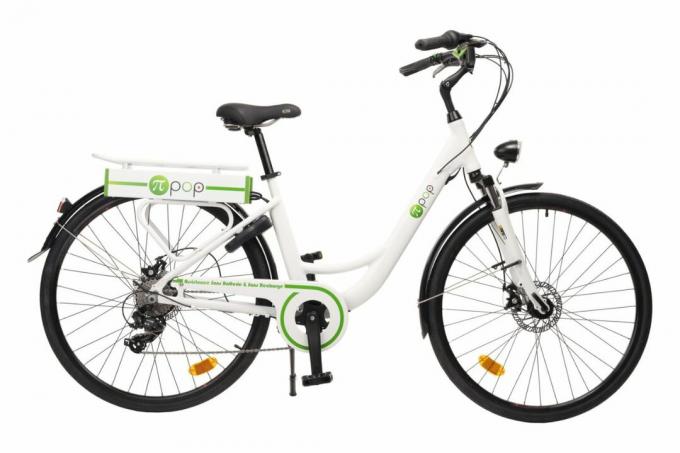A new model of bicycle can revolutionize the urban mobility sector with its innovative technology. Created by French businessman Adrien Lelièvre, the Pi-Pop bicycle is electric, but does not need batteries that affect natural resources.
The model invented by the businessman uses a supercapacitor that is charged while the bike travels through the streets. This sustainable measure is revolutionary, as the vehicle system stores and releases energy according to the user's needs.
see more
According to scientists, plants from the time of the dinosaurs still exist today;…
AI recreates Brazilian cities as if they were abandoned;…
“The system is charged when riding is easy and, when the bike brakes – thanks to the engine brake – the energy is returned when it is needed,” Lelièvre told the Euronews newspaper.
Adrien Lelièvre has a degree in electronics and runs the company STEE, responsible for developing a electric vehicle. The new supercapacitor that equips the bike can release energy quickly, whether on flat terrain or on climbs.
“The bicycle stores energy on flat terrain, when descending and when braking. Replenishes this energy when the need arises (starting, false planes and climbs)”, informs the product website.
Furthermore, the product description states that this storage system has a useful life of 10 to 15 years, which guarantees investment in new technology. In contrast, a lithium battery lasts an average of six years.
Therefore, more than convenience, Pi-Pop combines sustainable technology and design to guarantee a change in urban mobility. In fact, the Electric Bicycle It also doesn't need to be charged, as it has an efficient energy storage system.

(Image: Pi-Pop/STEE/Disclosure)
The Pi-Pop bike does not use lithium batteries, so the environmental impact is reduced, avoiding the environmental exploitation that is responsible for the extraction of this mineral element widely used in the electronics industry.
The bike's supercapacitor is made with carbon, a conductive polymer, aluminum foil and paper pulp. This selection of materials considered those components that already have recycling processes established so that Pi-Pop's production is conscious and sustainable.
In his interview, Lelièvre also reinforced how important it is to have control over production so that quality is guaranteed. Likewise, the new vehicle guaranteed the generation of jobs, involving 25 people who manufacture up to 100 Pi-Pop models every month.
“When we talk about sustainable development, ecological transition and energy transition, we have to create jobs”, commented the director of STEE.
For the future of the venture, he intends to increase production by producing a thousand bicycles by 2024 and reach the European market in 2025. At the moment, the Pi-Pop electric bicycle is sold for €2,450, approximately R$13,000 when converted into Brazilian currency.

